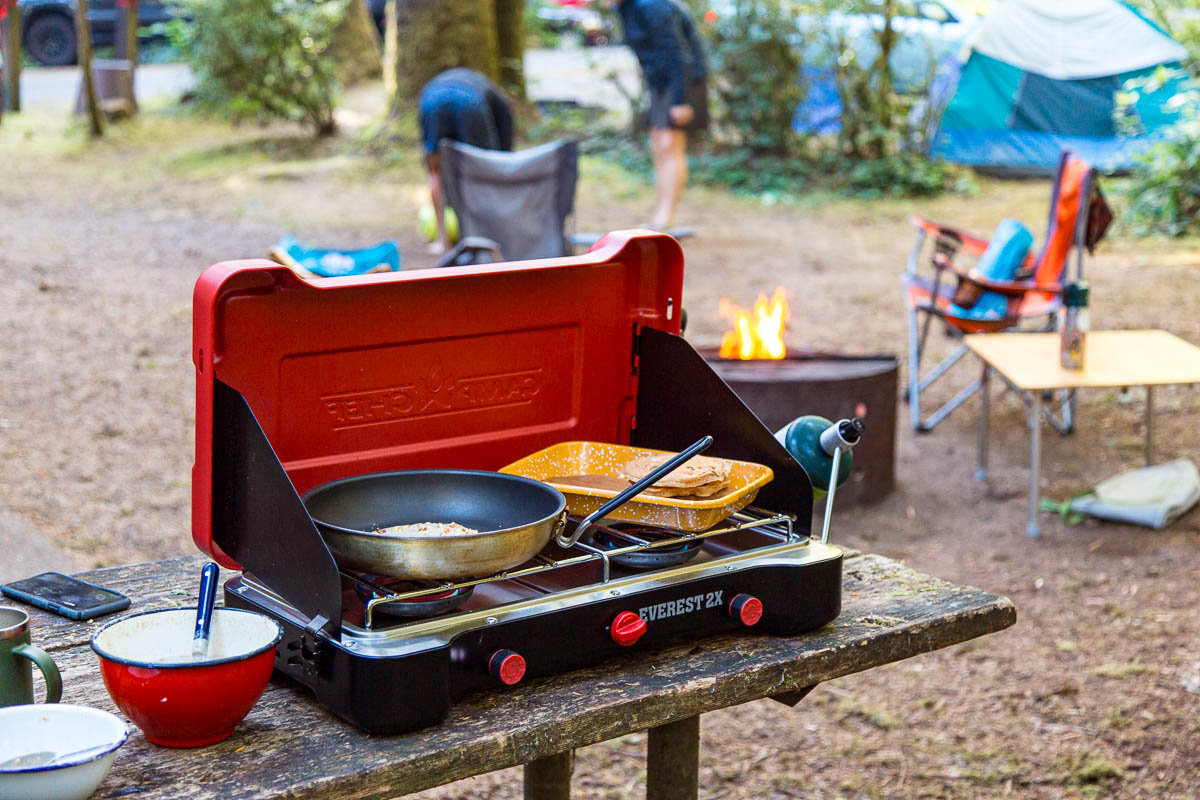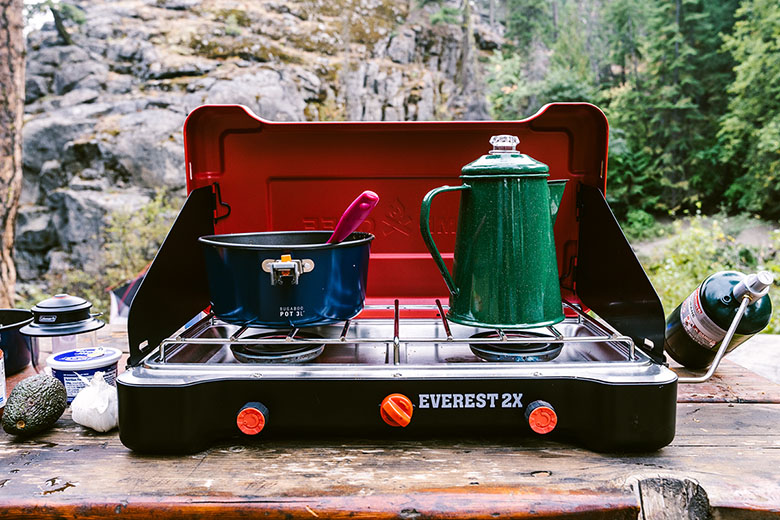
Introduction
Embarking on outdoor adventures often involves embracing the natural environment while relishing the experience of cooking and dining amidst breathtaking landscapes. A reliable camping stove serves as an indispensable tool, elevating outdoor cooking to new heights by providing convenience, efficiency, and versatility. In this comprehensive guide, we explore the diverse types of camping stoves, their features and fuel options, considerations for selecting the ideal camping stove, and essential tips for safe and efficient usage. From understanding the nuances of different stove types to discovering the best practices for outdoor cooking, this guide aims to equip outdoor enthusiasts with the knowledge and confidence to enhance their camping experiences through the art of culinary exploration.
By understanding the diverse types of camping stoves, considering essential factors for selection, and implementing safety protocols for usage, outdoor enthusiasts can elevate their culinary experiences while embracing the great outdoors. A carefully chosen and well-maintained camping stove serves as a gateway to culinary adventures, enabling individuals to savor delicious meals, foster camaraderie, and create lasting memories amidst the natural splendor of the wilderness.
Part 1: Types of Camping Stoves and Their Features
Level 1: Fuel Types and Energy Sources
Camping stoves are available in various fuel types, including propane, butane, white gas, liquid fuel, and multi-fuel options. Understanding the characteristics and availability of each fuel type is essential for selecting a camping stove that aligns with individual preferences, cooking needs, and environmental considerations.
Level 2: Stove Designs and Configuration
Camping stoves come in a diverse range of designs, such as classic two-burner models, compact backpacking stoves, and integrated systems that combine cooking and heating elements. Exploring the design features, portability, stability, and ease of assembly of different stove configurations allows adventurers to choose the most suitable option for their camping excursions.
Part 2: Considerations for Selecting the Ideal Camping Stove
Level 1: Cooking Needs and Group Size
Assessing the cooking needs and the size of the camping group is vital in choosing a camping stove. Larger groups may require larger stoves with multiple burners, while solo or small-group outings may benefit from compact and lightweight stove options that prioritize portability without sacrificing functionality.
Level 2: Environmental Considerations and Regulations
When selecting a camping stove, it’s important to consider environmental regulations, fire restrictions, and any guidelines applicable to the desired camping area. Opting for low-emission, eco-friendly fuel types and ensuring compliance with local regulations supports responsible outdoor practices and minimizes the ecological impact of camping activities.
Part 3: Essential Tips for Safe and Efficient Usage of Camping Stoves
Level 1: Proper Stove Assembly and Operation
Prior to using a camping stove, it’s crucial to become familiar with safe assembly, operation, and maintenance procedures specific to the chosen stove model. Following manufacturer guidelines, igniting the stove safely, and understanding heat control mechanisms are essential for ensuring a safe and efficient cooking experience.
Level 2: Maintenance, Cleaning, and Storage
Maintaining a camping stove in optimal condition involves regular cleaning, inspection of fuel connections, and careful storage. Proper maintenance not only extends the lifespan of the stove but also ensures consistent performance and safety during outdoor cooking endeavors. Taking preventive measures, such as checking for leaks and storing the stove in a secure and dry area, contributes to the longevity and reliability of the equipment.
Part 4: Cooking Options and Accessories for Camping Stoves
Level 1: Culinary Versatility and Accessories
Camping stoves offer extensive culinary versatility, and selecting the right accessories further enhances the outdoor cooking experience. These accessories may include grills, griddles, windshields, and specialized cookware designed for compatibility with camping stoves, enabling adventurers to prepare a diverse array of meals and expand their culinary repertoire in outdoor settings.
Level 2: Cooking Techniques and Applications
With the right accessories and a suitable camping stove, individuals can explore various cooking techniques such as grilling, simmering, baking, and boiling. Understanding the adaptability of different cooking techniques to outdoor environments empowers campers to create a range of flavorful dishes and enjoy gourmet meals even amidst the rugged beauty of nature.
Part 5: Durability, Portability, and Storage Considerations
Level 1: Durability and Reliability
The durability and reliability of a camping stove are essential attributes for withstanding the rigors of outdoor use. Evaluating rugged construction, robust materials, and quality craftsmanship enables outdoor enthusiasts to invest in a dependable camping stove that can endure frequent travel, varying weather conditions, and extended usage while retaining optimal performance.
Level 2: Portability and Space Efficiency
Portable camping stoves should be lightweight, compact, and designed for easy transportation, making them suitable for backpacking, car camping, or any outdoor excursion. Evaluating the portability and space efficiency of a camping stove ensures it seamlessly integrates with outdoor gear and offers practicality without creating a burden during travel or storage.
Part 6: Environmental Impact and Sustainability of Camping Stoves
Selecting camping stoves with eco-friendly fuel options, such as clean-burning propane or sustainable biofuels, aligns with environmentally conscious practices. Choosing fuel sources that minimize emissions, reduce environmental impact, and support sustainability fosters responsible outdoor activities and contributes to conservation efforts in natural habitats.
Embracing leave-no-trace principles when using camping stoves involves adhering to ethical camping practices such as proper waste disposal, adhering to fire regulations, and respecting natural habitats. By minimizing the ecological footprint and preserving wilderness areas, campers uphold ethical stewardship of the environment and ensure that future generations can also enjoy pristine outdoor settings.
Conclusion
By incorporating cooking options, considering durability and portability, and addressing environmental impact and sustainability, outdoor enthusiasts can maximize the benefits of camping stoves, enhance their cooking experiences, and contribute to responsible outdoor engagement. Mastering the art of outdoor cooking with a well-selected camping stove brings the joy of culinary exploration to the wilderness while fostering an enduring appreciation for the natural world.
As individuals venture into the wilderness with a carefully chosen and well-maintained camping stove, they carve a path towards unforgettable gastronomic experiences, profound connections with nature, and a deep appreciation for the simple joys of outdoor living. Ultimately, the perfect camping stove becomes a gateway to a world of culinary possibilities, where the beauty of the outdoors converges with the pleasures of sharing delicious meals, sparking meaningful conversations, and forging lifelong connections. Through the harmonious fusion of skilled outdoor cooking and the breathtaking landscapes of the great outdoors, the camping stove becomes a conduit for forging cherished memories and embracing the essence of adventure in its most savory and satisfying form.



